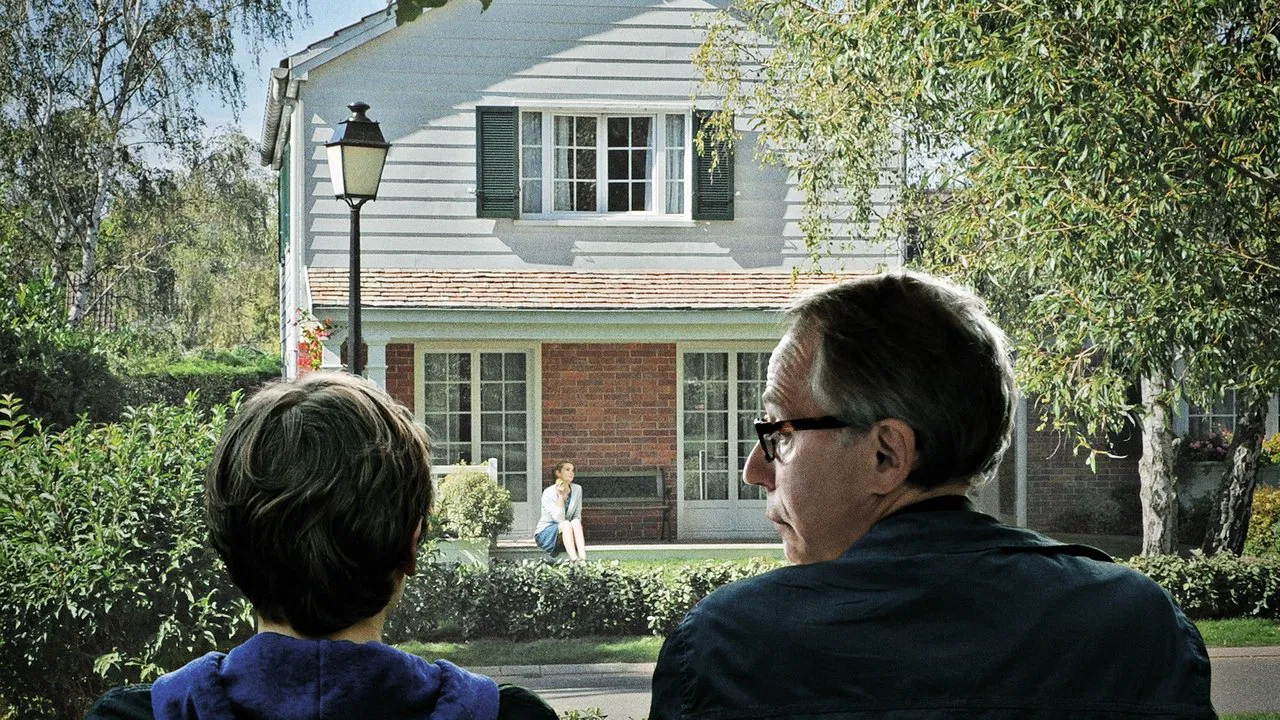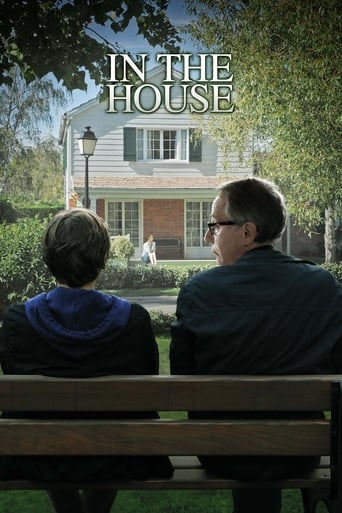

I'm the one of those who think that any movie, despite it's message or sense or purpose, shouldn't be boring. And this one is so boring. Is it for old people? Over 80? It's partly comedy, no way! There's nothing funny inside. Thriller? Be serious! This is slow...hmm....drama. I don't know what's so dramatic in this movie. There's no reason for existence of such a movie. If You don't know what to do in next 2 hours, go to sleep or watch Your flowers growing, You'll spend better amount of time than watching this rubbish. Even acting, despite respectable crew, is nothing special. Nothing in this movie should attract attention. It's simply boring. Period.
... View MoreJoining the Tom Ripleys and the Brandon Shaws of the world, Claude Garcia (Ernst Umhauer) is yet another slick sociopath that smiles a creepy smile in the face of the mini-tragedies that befall the people that attract his attention. He isn't a killer but he may as well be; he seems distant from reality, putting himself at an arm's length away from life's biggest outpourings of emotion.In the House is a clever black comedy that touches on the obsessions of Brian De Palma and the subtleties of Hitchcock. With an adept premise at its disposal, the film constructs several climaxes (some based in reality, some in fantasy) that act as tricks in a setting of stringed treats. Ozon's direction is subversive and unpredictable; the situation begins with a comedic edge, but will it transform into a voyeuristic thriller? In the House keeps us on our toes at all times — even if it isn't necessarily a "thriller" per se, it contains the same uncomfortable silence, the same uncomfortable suspense.It's the start of a new school year, and lit teacher Germain Germain (Fabrice Luchini) can feel unrest bubbling in his blood. When he assigns a "How I Spent My Last Weekend" essay, he is disappointed with the results. The majority of the kids are so apathetic that all they can muster is a few lines about how they ate pizza on Saturday and were too tired to do anything on Sunday. But one student perks his interest: the smarmy Claude Garcia, who writes about his experience wriggling into the home of an affluent family he's been spying on. To him, they're picture perfect. When he becomes the tutor of the house's youngest member, the shy Rapha (Bastien Ughetto), he is simultaneously intrigued and mocking of their boring normalities. The paper ends simply with a to be continued.Germain is troubled, but mesmerized. He seems to visualize a premise for a potentially successful novel, and immediately takes interest in Claude's writings. He wants his student to make that to be continued a reality. Germain once again finds enthusiasm for teaching, but when Claude proves to be much more perceptive and manipulative than he first appears to be, a chain of events trails on that means disaster for his instructor.In the House is brilliantly constructed, seamless in a labyrinth of intricacies. It's amusing and dark; as Germain analyzes Claude's writings as though they were fiction, there is devious smirk on Claude's face; but then again, we're wearing that devious smirk too. Germain intermittently pushes his student to further develop the Rapha Sr. "character," or delve a little deeper into the psyche of his wife (Emmanuelle Seigner) — one can only hold their head in their hands in frustration that Germain can't seem to grasp the idea that these people are real, and the damage done is all the work of Claude. Yet, Germain has had the same job for years, has been married for years, has kept the same routine going for years. In order to get some excitement into the atmosphere, he'd rather live the lives of seemingly average people just to avoid the ennui of his own. Luchini's performance is so convincing that we never see Germain with disappointment in our eyes; we instead see a man so caught up in escapism that he'd do anything to ride on its back.Claude, however, is a willing subject. He slides along corridors hoping to catch a glimpse of something he shouldn't, he wishes to whiff another scent of a middle-class woman, as he so uncomfortably puts it. For the majority of the film, he carries a dashing arrogance that makes you want him to do bad; but just towards the end, we find him just as desperate to escape his own reality as Germain is. Umhauer is 50 shades of sinister, and the fact that we hope for something unspeakable to happen speaks volumes about his performance.In the House jumbles up the trappings of suburban life and twists it into a gnarled exercise in underlying tension. The terror we feel never comes to a head, but we crave it. Read more reviews at petersonreviews.com
... View MoreEven though my French is rudimentary, I could hear Claude describe Rapha's family as "une famille normal". This phrase was incorrectly translated as "perfect family" since it's clear that "normalcy" was what he was yearning for in view of the fact that his mother had left him when he was very young and that he had to care for a paraplegic father. The family was "normal" but far from perfection.This is not a review. I'm just pointing out an imprecise word translation from French into English, which does affect the meaning of the movie's subtext. Shouldn't you take into account that not everybody wants to write a review but to point out certain inaccuracies?Also, your spell check should not try to correct the spelling of French words such as "famille".
... View MoreThis film is a Chinese box. Reality inside fiction. Fiction inside fantasy. Fantasy inside wish. A story nested inside many others, all "In the House". A boy writes for his frustrated teacher about his real life supposedly. The teacher makes the boy a protégé, but critiques his story, which is the boy's real life maybe. Soon the teacher, his wife, and the audience are caught up. Are we voyeurs to the boys real life, stalking real people, or just watching fictionalized people in a story? What happens when the watchers become characters in the story? When we see a scene with the boy's real father, is it true? Or just a form of escape? What I love is that I don't believe the boy is a real stalker, or voyeur, not really. He's a Houdini escape artist, using art and the mind to escape his real world, and create another. Its just it may be very dangerous how he's doing it, because he's using his fantasy and the fantasies of others, to escape his own reality and using real lives to do so sort of. So he's dangerous, but in your heart can you forgive him? Or are you being duped? He's a very clever kid. In a way he makes the lives of others more real to themselves, for which there are consequences. A middle class mother Esther, who the boy inappropriately woos, falls right back in using a child to escape her boring life. The teacher's wife Jeanne escapes her unreal life when the boy tells her a secret maybe. The people in real lives that his fiction illuminates are changed forever. What I really respect about this film, is that the boy sees the people in the lives he wants, more clearly than they see themselves. They feel his clarity as an invasion, or criticism. But really it is a begrudging acceptance that no matter how stupid or vacuous their concerns, their lives hold the key to his escape. As an artist he needs to be able to describe his own real life. But he's too young for that, he needs his imagination to escape first. Then later, he can return to somewhere, a home 'inside the house' where he is respected, cared for, wanted. First you have to imagine it possible. Reality is a burden if you can't escape it.
... View More